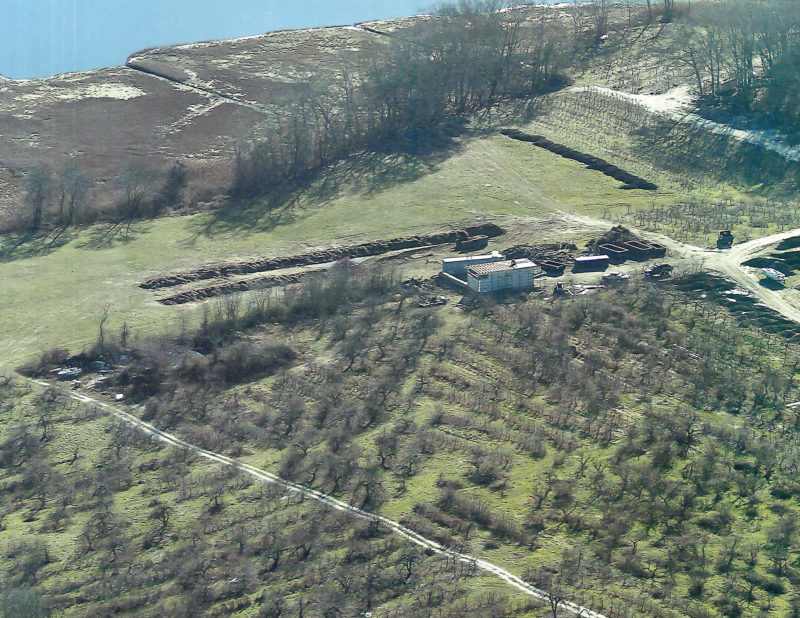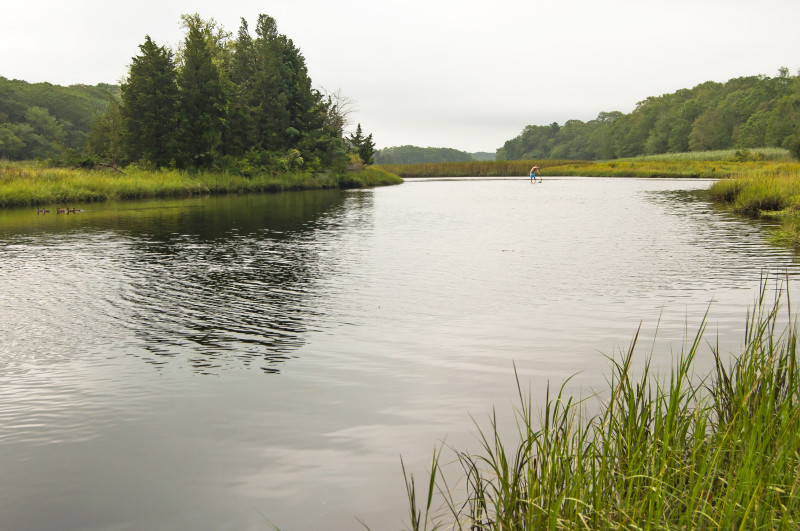Addressing the unintended consequences of composting
There’s lots to love about composting: it reduces food waste, creates all-natural fertilizer, and even helps fight climate change by storing carbon in the soil and reducing methane emissions created by food decomposing in landfills. Yet some composting practices on the South Coast are having a negative impact on Bay waters by increasing the discharge of nitrogen into local waterways.
Composting recently became much more common in Massachusetts following a state-wide ban, established in 2014, on disposing large amounts of food and other organic waste into landfills. The ban was an effort to reduce the state’s serious food-waste problem. According to the Department of Environmental Protection (DEP), one-quarter of all trash in Massachusetts is food, and state landfills are close to full.

Compost heaps directly adjacent to a salt marsh along the Westport River.
But while large commercial composting facilities are managed by strict environmental regulations, there are few rules around smaller, farm-based sites – or even clarity about which state or local agency manages them. Without proper oversight, unregulated composting sites can leach nitrogen into coastal ecosystems that are already sensitive to the effects of nitrogen pollution.
In a series of workshops this winter and spring, the Coalition will bring together diverse stakeholders deeply involved in this issue. The goal of the workshops will be to better understand the challenges facing local composters, and to identify solutions in an effort to create model regulations for better, more Bay-friendly composting.
Stakeholders will include farmers who compost, cranberry growers, fish processing houses, the Farm Bureau, DEP, the Department of Agriculture, and local communities like Dartmouth, Westport, and Middleborough, who have been struggling with this issue.
These workshops are funded by a Southeast New England Program (SNEP) Watershed Grant. SNEP Watershed Grants are funded by the U.S. Environmental Protection Agency (EPA) through a collaboration with Restore America’s Estuaries (RAE).

For years, the Slocums River was one of the 27 local waterways on Buzzards Bay that need TMDLs — federally approved cleanup plans that chart a course to restore polluted rivers, harbors, and coves.
In some Bay waterways, the need to regulate pollution from composting is greater than ever. In October, the US EPA approved a nitrogen pollution limit, known as a TMDL, for the Slocums River in the town of Dartmouth. This limit is a positive step forward for the Slocums River, whose high nitrogen levels have kept it on the state’s “dirty waters” list for over 15 years. The limit requires the town of Dartmouth to cut the river’s existing nitrogen levels by approximately 25 percent.
But as the number of small composting sites increase in the river’s watershed, reducing existing sources of nitrogen to meet this TMDL becomes more difficult.
The upcoming workshops will seek to ensure that we don’t cancel out an environmental positive – composting – with the environmental negative of nitrogen pollution. The Coalition is committed to working with all communities to reduce all sources of nitrogen pollution, restoring water quality for public use and enjoyment.